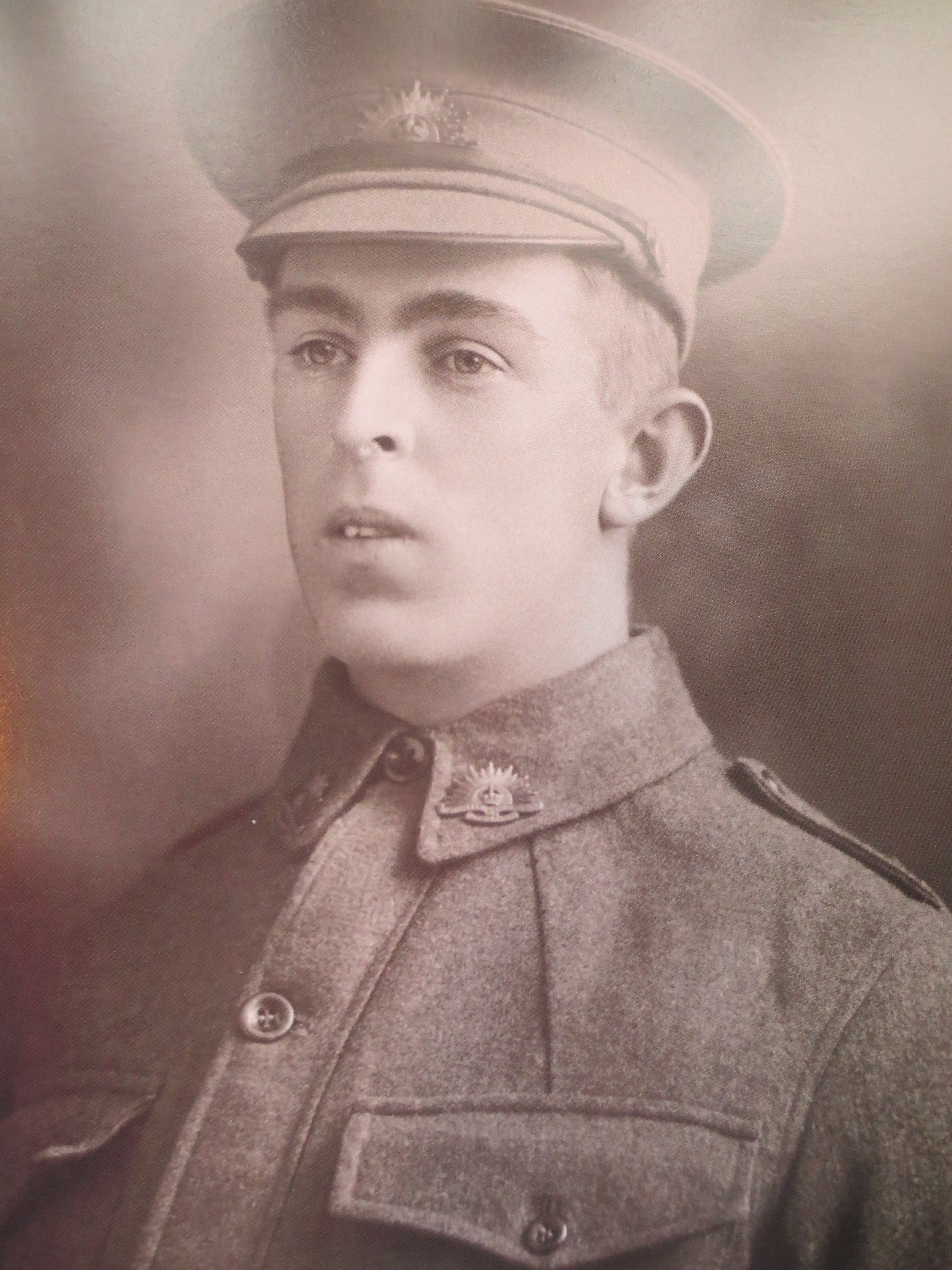
15th Trench Mortar Battery
Do you know more? You can share your personal stories and photos on the ANZAC Centenary website.
William Messer was born in Ballarat East and was a draper by trade when he enlisted in the 8th Battalion, 14th Reinforcement on 16 July 1915 at the age of 18. His unit embarked from Melbourne, Victoria, on board HMAT A32 Themistocles on 28 January 1916. In early April he was transferred to the 58th Battalion and moved to France in June, and it seems he was lucky enough to escape injury at Fromelles where his battalion suffered heavy losses.
In February 1917 he was moved to the 15th Light Trench Mortar Battery and the following month he was wounded. He suffered a gunshot wound to his left leg and was evacuated to hospital in France. He was able to rejoin his unit in June and three months later he was engaged in an action which earned him the Military Medal, his citation reading - 'During the operations in which the 15th Australian Infantry Brigade were engaged on 26th September 1917, Lance Corporal MESSER was in charge of one of our detachments which advanced with the 59th Battalion. On reaching their objective Lance Corporal MESSER and his detachment 'dug-in' and constructed an emplacement for their mortar. Shortly afterwards the mortar was blown up and three of the detachment were wounded. Lance Corporal MESSER immediately returned to our former front line and obtained a reserve mortar. On the return journey one of his two men was wounded, Lance Corporal MESSER at once seized the piece which the wounded man had been carrying and in spite of the heavy artillery barrage and his double load (he was now carrying both the base plate and the piece of the mortar) managed to reach his position. Just as he reached the emplacement he received a message that an enemy machine gun was still in action on our left front. He immediately got his mortar into action and silenced the Machine Gun. By his bravery and devotion to duty MESSER set a splendid example to all who came in contact with him.'
In July 1918 he was once again outstanding under fire during operations east of Ville-sur-Ancre, and was awarded a Bar to his Military Medal, this recommendation reading in part, 'With complete disregard of personal danger, carried on during the heavy fire of the enemy barrage on our lines on the evening of July 4th in a manner that kept up the morale of all in his vicinity. Though himself well within the enemy barrage line he moved freely about between his two guns and by his fearless example inspired his men.' He was wounded for a second time on September 2nd 1918, when he sustained severe shell wounds to his thigh and left arm/shoulder which effectively ended the war for him. He returned home on the Delta and disembarked at Melbourne on March 10th 1919.